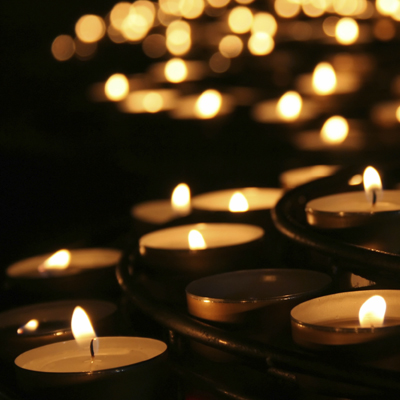
- Physical, mental, emotional well-being
- Protection from abuse and neglect
- Education, training, recreation
- Domestic, family and personal relationships
- Contribution made to society
- Securing rights and entitlements
- Social and economic well-being and suitability of living accommodation
- For adults, it also includes control over day to day life and participation in work
- For a child, it includes physical, intellectual, emotional, social and behavioural development and welfare
Whilst these determinants admittedly cover a wide range of activities and domains relevant to quality of life, there is one aspect of life which is conspicuous by its absence. The aspect I have in mind is spirituality, and I’m curious to know what the thought processes were in the committee and drafting process which led to this omission. Deliberate act or simple oversight…?
Whilst currently many people retain formal religious beliefs and practices, many have also moved towards a more secular non-religious position, often whilst still retaining a personal spirituality which they hold dear. Catering for multiple faiths, agnosticism and even spirituality within atheism might not be easy, but is the answer to ignore or minimise the importance of spirituality?
One of the greatest religious thinkers of the 20th Century, Professor Ninian Smart, believed that religion did not exist in isolation but was deeply connected to all human existence, to the extent that every culture and civilisation expressed itself through its religion or ‘world-view’. The experience of ‘awe’ at the nature of existence was, he believed, a universal response to living within our universe. He also believed that failing to make an allowance for this universal truth was to deny a fundamental aspect of human existence. Furthermore, people are most likely to seek strength and support from their spiritual beliefs at times of difficulty.
The Nursing and Midwifery Council expects nurses to be able to take spiritual needs into account within a broader assessment of need; The nurse…“ In partnership with the person, their carers and their families, makes a holistic, person centred and systematic assessment of physical, emotional, psychological, social, cultural and spiritual needs, including risk, and together, develops a comprehensive personalised plan of nursing care.”
According to the Royal College of Nursing, spirituality embraces a broad range of human experience including;
- hope and strength;
- trust;
- meaning and purpose;
- forgiveness;
- belief and faith in self, others, and for some this includes a belief in a deity/higher power;
- peoples’ values;
- love and relationships;
- morality;
- creativity and self expression.
Curiouser and curiouser then? Whilst spirituality is recognised as an essential part of care and a cornerstone of life (especially in times of distress), by the profession of nursing, the legislation chose not to recognise it. Perhaps it is considered as being implicit within the determinants – particularly within the mental well-being, personal relationship and contribution to society-related determinants? Such an important aspect of life, however, should perhaps be more visible within the legislation, when so many people rely on their spirituality in times of crisis.
Reference. Royal College of Nursing (2011), Spirituality in nursing care: a pocket guide. Available at; https://www2.rcn.org.uk/__data/assets/pdf_file/0008/372995/003887.pdf






